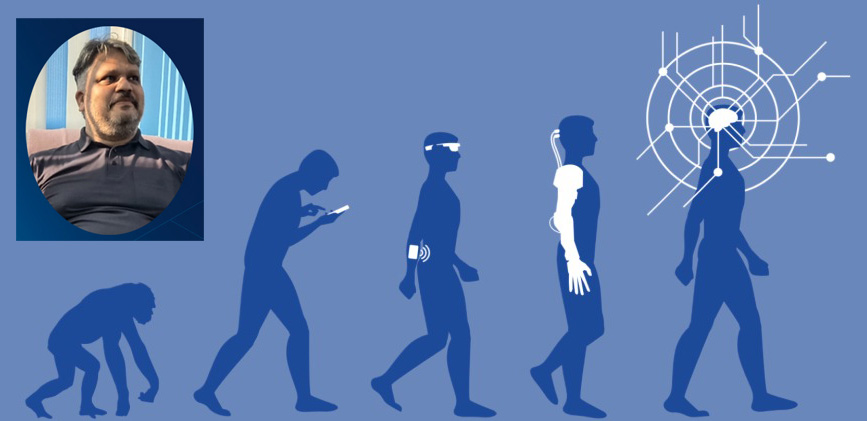
Does AI and Quantum Computing Snatch Jobs or Open New Opportunities? What is the Best to Do in This Era
The advent of Artificial Intelligence (AI) and Quantum Computing is shaping the modern workforce in ways that are both exciting and unsettling. As these technologies advance, they inevitably raise questions about the impact on jobs. Are these technologies stealing jobs from human workers, or are they creating new opportunities? More importantly, how should individuals prepare for this evolving landscape?
The advent of Artificial Intelligence (AI) and Quantum Computing is shaping the modern workforce in ways that are both exciting and unsettling. As these technologies advance, they inevitably raise questions about the impact on jobs. Are these technologies stealing jobs from human workers, or are they creating new opportunities? More importantly, how should individuals prepare for this evolving landscape?
Are AI and Quantum Computing Taking Away Jobs?
One of the most common concerns surrounding AI is its potential to automate jobs, especially those involving repetitive or predictable tasks. Technologies like machine learning, natural language processing, and robotics are increasingly being used to handle tasks once managed by human workers. AI-driven automation is most visible in industries such as:
Manufacturing: AI-powered machines and robots can now handle tasks like assembly, packaging, and quality control, which were traditionally performed by human laborers.
Customer Service: Chatbots and AI-driven support systems are reducing the need for human agents in basic customer interactions.
Data Processing: AI algorithms can quickly analyze large datasets, leading to a decline in jobs related to data entry, bookkeeping, and similar administrative tasks.
Similarly, Quantum Computing—though still in its early stages—has the potential to revolutionize fields such as cryptography, logistics, pharmaceuticals, and financial modeling. Its ability to process and solve complex problems at unimaginable speeds could replace some highly specialized roles. However, the full impact of quantum computing on the job market will unfold over the next few decades.
The Creation of New Opportunities
While AI and quantum computing are certainly automating certain jobs, they are also opening new opportunities and creating entirely new career paths:
AI and Machine Learning Engineers: As AI continues to advance, there is a growing demand for engineers who can build, train, and maintain AI systems. This requires specialized knowledge in programming languages like Python, as well as expertise in algorithms and data science.
Data Scientists and Analysts: AI relies on data to function, and there is an increasing need for professionals who can gather, clean, and interpret data to improve machine learning models. As AI systems become more sophisticated, the demand for data science professionals will grow.
Quantum Computing Specialists: The rise of quantum computing is creating opportunities for individuals with advanced knowledge in physics, mathematics, and computer science. Quantum researchers and engineers are already in high demand in sectors like cryptography, materials science, and drug development.
AI Ethics and Policy Experts: As AI technologies become more ingrained in society, ethical concerns around privacy, bias, and accountability are growing. This has led to the need for professionals who can develop ethical frameworks, regulations, and policies to ensure the responsible use of AI.
Creative and Design Jobs: While AI can automate tasks, creativity remains a uniquely human skill. Jobs in creative industries, such as marketing, graphic design, and content creation, are evolving to incorporate AI tools for enhanced productivity and creativity.
The Dual Nature of AI and Quantum Computing
AI and quantum computing have a dual impact on the job market. On one hand, they may lead to job displacement in industries that rely on manual or repetitive tasks. On the other hand, they are generating new job categories and demands for highly skilled professionals. Moreover, AI is not simply replacing human roles; it is also augmenting them, allowing workers to focus on higher-level tasks, creativity, and innovation.
For example, doctors are now using AI-driven diagnostic tools to identify diseases more quickly and accurately, enabling them to spend more time with patients and provide better care. Similarly, financial analysts use AI algorithms to process massive amounts of data, freeing them up to focus on strategic decision-making.
What Should We Do in This Era?
To thrive in an era dominated by AI and quantum computing, individuals must adapt and evolve. Here are key strategies for navigating this landscape:
Continuous Learning and Upskilling:
As AI and quantum technologies evolve, so too must your skills. Learning programming, data science, and AI-related skills can make you indispensable in many industries. Online platforms like Coursera, edX, and Udemy offer accessible courses to build these skills.
Additionally, as quantum computing gains traction, those with a background in mathematics, physics, and computer science should consider specializing in quantum technologies.
Develop Hybrid Skills:
One of the most powerful ways to future-proof your career is to develop hybrid skills—combining technical knowledge with soft skills. For example, learning AI concepts while honing creative, problem-solving, and leadership abilities will allow you to excel in management roles that require both technical acumen and strategic insight.
Focus on Creativity and Emotional Intelligence:
While AI is incredibly powerful in data analysis and automation, it still lacks human creativity, empathy, and emotional intelligence. Focusing on roles that require these uniquely human traits—like leadership, counseling, teaching, and artistic professions—can help you stay relevant in the job market.
Explore Emerging Fields:
Quantum computing is poised to revolutionize industries like cryptography, logistics, and material science. As these fields grow, they will need experts in quantum algorithms, quantum hardware, and quantum software development.
Likewise, AI is creating new roles in areas like AI ethics, policy-making, and sustainable technology. Keeping an eye on emerging trends can help you identify where future job growth will occur.
Embrace Adaptability:
The most important skill in this era is adaptability. The world of work is constantly changing, and those who can pivot, learn new things, and embrace change will have a significant advantage. Be open to lifelong learning, new experiences, and roles you may not have considered before.
Conclusion
AI and quantum computing are reshaping the job market in profound ways. While they may automate certain jobs, they are also creating vast new opportunities for those willing to adapt. By investing in continuous learning, developing a hybrid skill set, and focusing on creativity and adaptability, you can thrive in this rapidly evolving era. These technologies are not just snatching jobs—they are building the foundation for a future filled with new possibilities.














